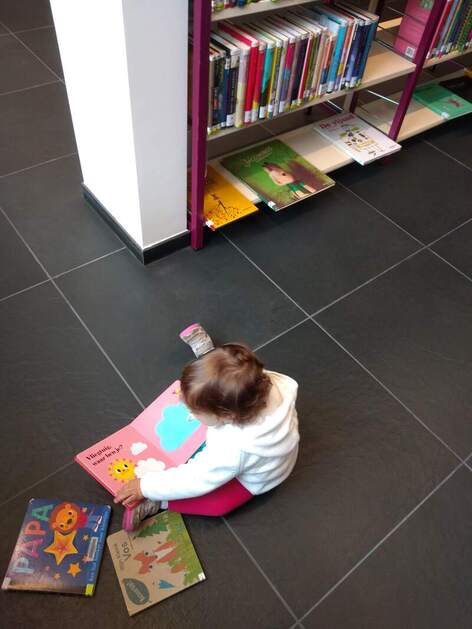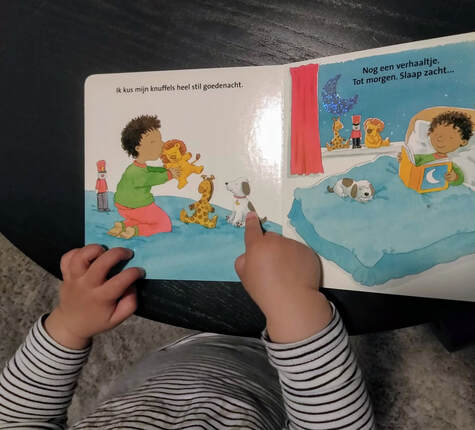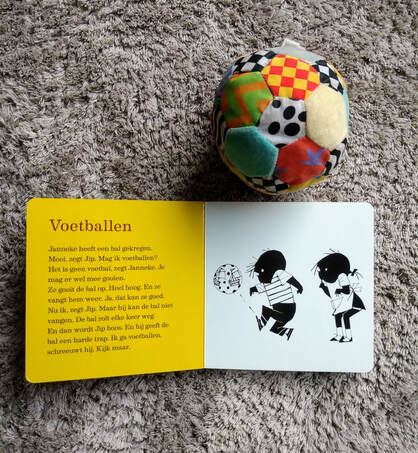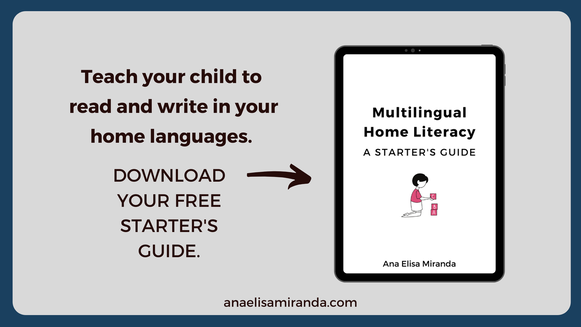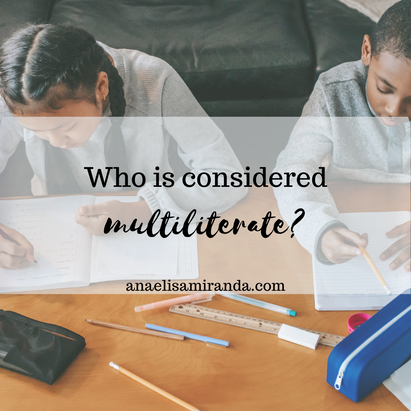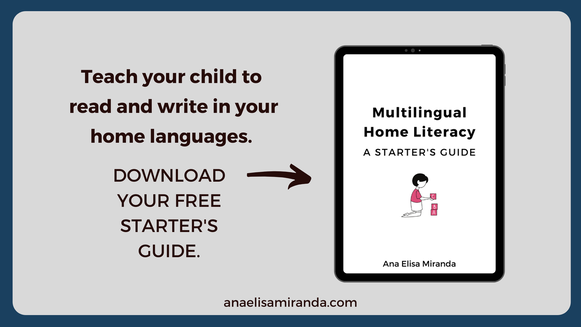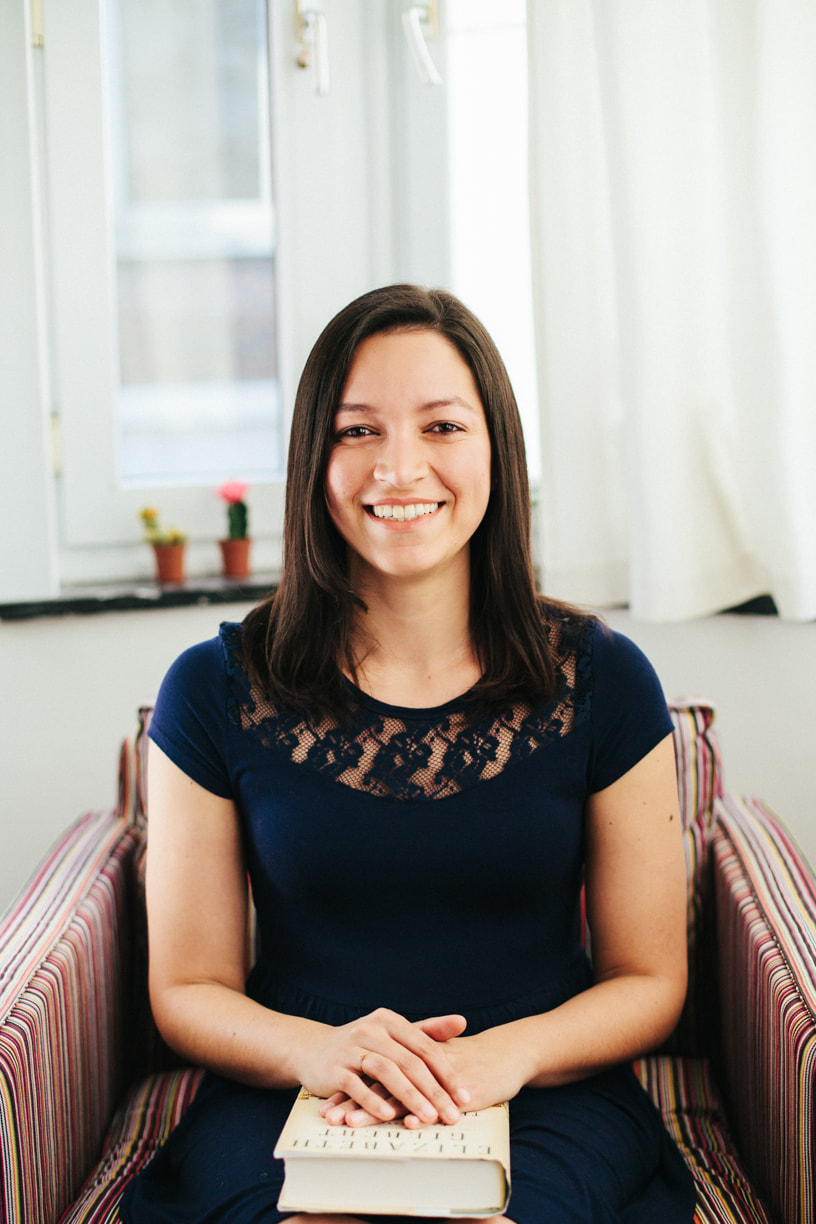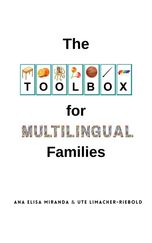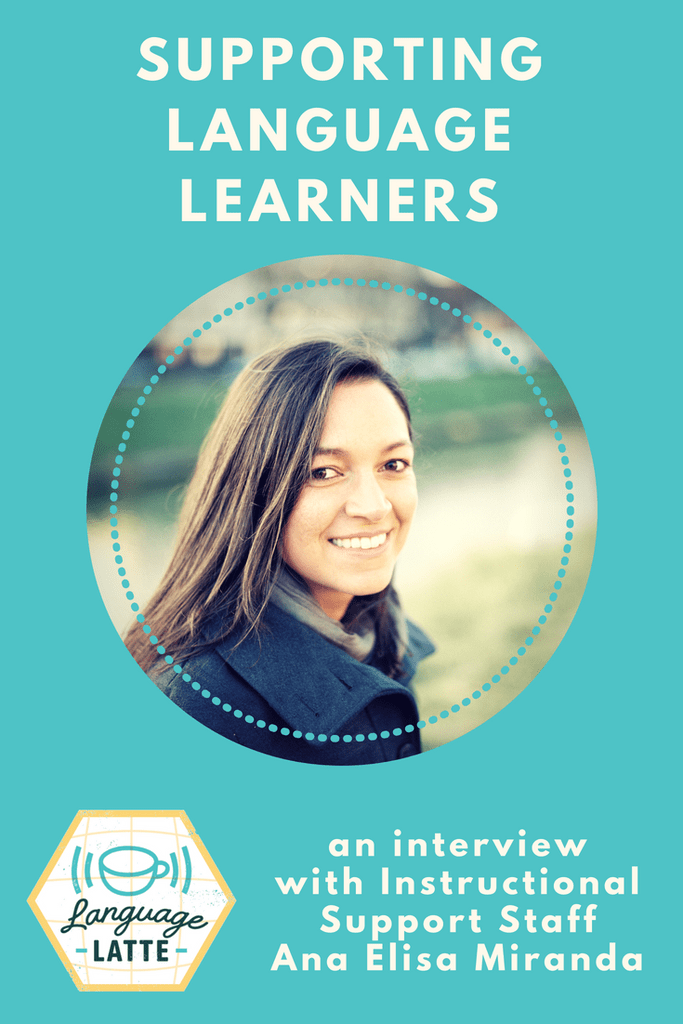My baby is turning two! What a wonderful and challenging age!
Today I thought I’d share our experience of reading with her, in Portuguese and Dutch, and how important this has been for her development.
I hope you feel encouraged to find a bit of time everyday to share a book with your tot.
→ When A. was a few weeks old, my family sent a box full of books from Brazil. I was so happy to have a variety of stories to read to her. I often did this while she lay on her playmat. She liked listening to my voice and looking at the colorful pictures.
→ Just before she turned 4 months old, we went back to work and A. started going to daycare. I only saw her for a few minutes in the morning and a couple of hours in the evening. Time was spent mostly on feeding, bathing, and bedtime, so it was very difficult to keep the language exposure I would like... I still sang, talked and tried to read a book everyday.
→ When A. was 8 months old, she was very interested in books with different textures. She would reach, grab, scratch, smile, babble, put them in her mouth and look a bit puzzled (Wait, this isn’t food?).
→ A couple of months later, our nursing chair turned into our reading nook! She loved sitting on my lap and listening to stories at bedtime. And when the book was done, she looked down at the book basket on the floor, asking for more!
Today I thought I’d share our experience of reading with her, in Portuguese and Dutch, and how important this has been for her development.
I hope you feel encouraged to find a bit of time everyday to share a book with your tot.
→ When A. was a few weeks old, my family sent a box full of books from Brazil. I was so happy to have a variety of stories to read to her. I often did this while she lay on her playmat. She liked listening to my voice and looking at the colorful pictures.
→ Just before she turned 4 months old, we went back to work and A. started going to daycare. I only saw her for a few minutes in the morning and a couple of hours in the evening. Time was spent mostly on feeding, bathing, and bedtime, so it was very difficult to keep the language exposure I would like... I still sang, talked and tried to read a book everyday.
→ When A. was 8 months old, she was very interested in books with different textures. She would reach, grab, scratch, smile, babble, put them in her mouth and look a bit puzzled (Wait, this isn’t food?).
→ A couple of months later, our nursing chair turned into our reading nook! She loved sitting on my lap and listening to stories at bedtime. And when the book was done, she looked down at the book basket on the floor, asking for more!
→ At 1y6m, she could find and point at some things I named (ball, cat, fish), sometimes she pointed at animals and looked at me - expecting me to make the animal sound. Later she started making sounds for dog, cow and horse, as well as fish lips.
→ Reading Comprehension... for babies!?
The ultimate goal of reading anything is to understand a message - be it very simple or super complex.
We need to know the words and ideas presented in the text, so that we can make connections to what we know about the world around us.
The world of a baby/toddler is their home, family, toys, pets... so those are the connections they start to make when you read with them!
A. started to spontaneously look for things she knew we had in the house, to match the things she saw on her books. She can also say that she has seen or done the same things that are on the book (rode a bike, went on the swings, saw a dog...)
→ On PRINT AWARENESS, one of the early pillars of literacy development: I almost jumped when A. (1y8m) pointed at a page of the book we were reading and said, "A!" (in Portuguese, pronounced ‘Ah’). I did NOT expect that, but it actually didn't come as a surprise.
Literacy development goes hand in hand with language development and it starts even before birth.
Being intentional and consistent with language and literacy experiences, in a natural and enjoyable way, is so beneficial - and it's never too early.
I did not TEACH her the letters, but:
* I've been reading with her everyday since she was a few days old.
* We have blocks and tiles that spell her name and she's curious about them. I point, say the sounds and put them in order.
* I read - and point with my finger - everything that might interest her in our environment.
She's been recognizing A and O consistently and every time we color together she says, "Mama, A!" and hands me a crayon so I can write. We'll continue like this: naturally, playfully and intentionally fostering languages and literacy. What an exciting start!
Now she’s almost two and we can see that we owe a great deal of her language development - in both Dutch and Portuguese - to the habit of reading aloud regularly.
And she loves reading so much that she often goes to bed crying for “Nog boekje!” or “Mais livro!” (more books).
***
How's YOUR experience of reading with your children?
***
You might also like:
Support literacy even before your child starts to read
Reading aloud with multilingual children of all ages (YouTube video)

